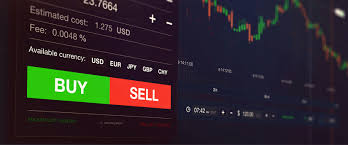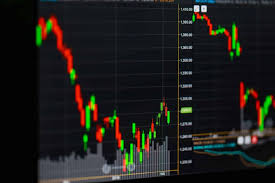
The Ultimate Guide to Forex Trading Course for Beginners
Forex trading, or foreign exchange trading, is one of the most dynamic and potentially lucrative financial activities globally. For those looking to enter the world of Forex, a well-structured forex trading course Online Trading Brokers course is vital for fostering a deep understanding of market mechanics, trading strategies, risk management, and psychological preparedness. This comprehensive guide will cover the essential elements of a Forex trading course suited for beginners.
Understanding the Forex Market
The Forex market is the largest financial market in the world, with a daily trading volume exceeding $6 trillion. Understanding how the market operates is crucial before making any trading decisions. A good Forex trading course will introduce you to critical concepts, such as:
- Currency Pairs: Learn how currencies are traded in pairs, such as EUR/USD or GBP/JPY, and comprehend the bid and ask prices.
- Market Participants: Understanding who the major players are, including central banks, investment firms, and retail traders.
- Trading Sessions: Explore the various trading sessions and how different markets can impact price movements.
Fundamental Analysis
Essential to Forex trading is understanding how economic indicators and news can affect currency values. A Forex trading course will delve into:
- Economic Indicators: Discover indicators like GDP, employment data, and CPI, and learn how to interpret their influence on currency values.
- News Trading: Analyze how global news events impact Forex markets, and learn the importance of a trading calendar.
- Geopolitical Events: Understand how political stability and economic policies in different countries can create volatility.
Technical Analysis
Alongside fundamental analysis, technical analysis is a foundational aspect of Forex trading. A thorough course will cover:
- Charts and Patterns: Learn to read price charts, identify trends, and recognize patterns that can signal trading opportunities.
- Technical Indicators: Explore various indicators, such as Moving Averages, RSI, and MACD, and understand how they can aid in making trading decisions.
- Support and Resistance Levels: Grasp the importance of these levels in determining entry and exit points for trades.
Trading Strategies
Building an effective trading strategy is crucial for success in the Forex market. A quality course will introduce various strategies, including:

- Day Trading: Learn the principles of making quick trades based on short-term price movements.
- Swing Trading: Discover how to take advantage of price ‘swings’ over a more extended period.
- Scalping: Understand the strategy of making numerous small trades to capture minor price changes throughout the day.
Risk Management
One of the most critical elements of Forex trading is managing risk. A reputable trading course should cover:
- Position Sizing: Understand how to determine the size of your trades relative to your account balance to minimize losses.
- Setting Stop-Loss and Take-Profit Orders: Learn how these tools can protect your capital and lock in profits.
- Risk-to-Reward Ratio: Explore how this ratio can guide your trading decisions and help maintain profitability over time.
The Psychological Aspect of Trading
Trading psychology is as important as technical and fundamental analysis. An effective trading course will address:
- Emotional Discipline: Learn how to maintain discipline during losing streaks and avoid impulsive decisions.
- Confidence Building: Understand the importance of building trust in your trading strategy.
- Handling Fear and Greed: Explore techniques for managing these common emotional pitfalls that traders face.
Choosing the Right Trading Platform
The trading platform you choose can significantly impact your trading experience. An ideal Forex trading course will guide you through:
- Evaluating Broker Platforms: Identify what features to look for in an online broker, including fees, asset availability, and customer support.
- Using Trading Tools: Understand the use of tools such as demo accounts, charting software, and mobile trading applications.
- Executing Trades: Learn how to place and manage trades effectively on your chosen platform.
Continuing Education and Community
Forex trading is continuously evolving; therefore, ongoing education is vital. Quality Forex courses will encourage learners to:
- Engage in Online Communities: Connect with other traders to share experiences, strategies, and market insights.
- Stay Current: Follow market news and updates to adapt to changing market conditions effectively.
- Seek Further Education: Consider advanced courses, webinars, or workshops to deepen your understanding.
Conclusion
Embarking on a Forex trading journey requires dedication, knowledge, and a well-rounded education. By enrolling in a comprehensive Forex trading course, you’ll gain crucial insights into market mechanics, trading strategies, risk management, and the psychology of trading. As you progress, remember to practice patience and discipline, considering that consistent profit-making in Forex is a long-term endeavor. With the right tools and knowledge, you can navigate the complexities of the Forex market and potentially achieve your trading goals.
